Description
ABSTRACT
The Exclusive Jurisdiction of the Investments and Securities Tribunal (IST): A Constitutional Perspective
Abubaki Yekini*
ABSTRACT
Investment disputes have been settled by various commissions and courts before the establishment of the Investments and Securities Tribunal (IST) in 1999. The various settlement regimes have been ordered through different legislations. The advent of the 1999 Constitution, as amended, brought with it some constitutional changes in the area subject-matter jurisdiction of courts. For instance, restriction on the unlimited powers of the State High Courts, introduction of exclusivity in the jurisdiction of Federal High Courts and so on. In 1999, The Securities and Exchange Commission (SEC) Act established a new tribunal for the settlement of investment and securities matter and in 2007, the Investments and Securities Act (ISA) repealed the SEC Act and also gives the IST exclusive jurisdiction over investment and securities matters. This obviously raises some constitutional issues. The objective of this paper, therefore, is to critically explore the constitutionality or otherwise of the exclusive jurisdiction granted the IST by the Investments & Securities Act, 2007 vis-à-vis the wide jurisdiction of the State High Courts in contractual matters and exclusive jurisdiction of the Federal High Court in Companies and Allied Matters Act (CAMA) related matters. The paper concludes that the policy behind the ISA 2007 is to achieve a speedy disposal of investment matters and hence, the need for a specialized tribunal. However, it seems proper legislative enquiry was not carried out in ensuring that the proposed exclusive jurisdiction did not conflict with existing jurisdictional framework in the extant constitution. The paper finds that the exclusive jurisdiction of the IST conflicts with s.251 of the Constitution which already grants exclusive jurisdiction to the Federal High Court over Company Securities matters and s.272 which grants the State High Courts wide jurisdiction over contractual matters.
INTRODUCTION
A foreign investor will want to have some assurances that his investment will meet a favourable legal framework that will ensure speedy resolution of investment disputes and ensure that business justice is guaranteed. Investment and securities related disputes are an aspect of our civil law that deserve not only timeous resolution but adjudication by a competent arbiter who has the necessary expertise in investment and securities matters.
To this extent, excising investment and securities matters from the regular courts that are bedevilled with technical justice, extremely delayed resolution process and high cost of litigation is a welcome development. As a matter of fact, it is now a common phenomenon in many jurisdictions to have a specialized tribunal to settle investment disputes. It is with this forward-looking dimension in mind that the Nigerian government decided to establish the Investments and Securities Tribunal to settle all claims arising out of Investment and Securities Disputes.1 This was as a result of the Dennis Odife Panel Report which ‘found that an appropriate judicial machinery does not exist within the Capital Market for the speedy determination of all controversies and disputes that may arise within the Market’ and therefore recommended ‘the establishment of an Investment Services Tribunal (1ST) to be structured along the lines of the Body of Tax Appeal Commissioners for the adjudication of all controversies and disputes arising within the Capital Market in a speedy ‘informal’ and yet business-like manner’. The government eventually opted for an ‘Investments and Securities Tribunal’ as against the Investment Services Tribunal suggested.2
* LL.B, BL, LL.M. Department of Jurisprudence & International Law, Lagos State University,
- See the opinion expressed by Ogunwuniju JCA in Nospecto Oil & Gas Ltd v Olorunimbe & Ors (2012) 10 NWLR (Pt 1307) 115 at161 para c
- However, the Panel’s recommendation that the Tribunal should be an inferior court whose decisions should lie to the Federal High Court was not adopted by the government. See the Dennis Odife Panel Report on the Review of the Nigerian Capital Market, 1996, p 60

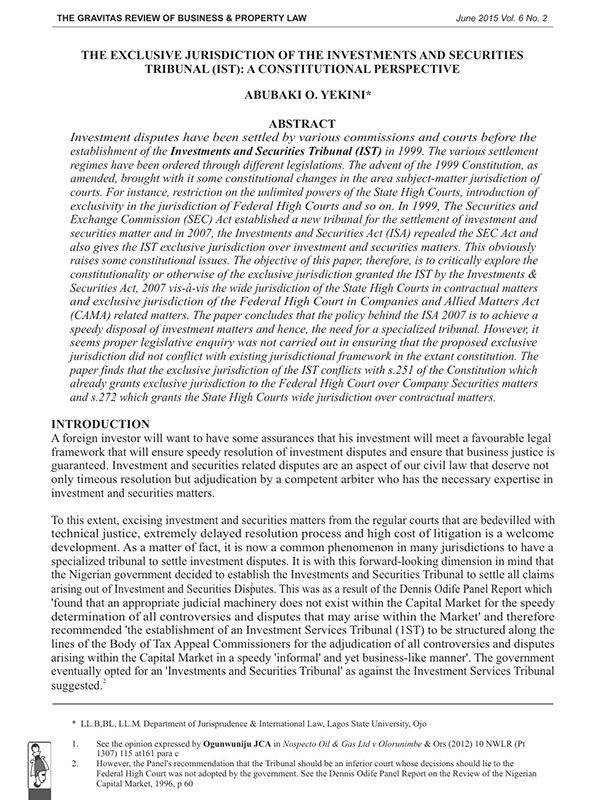
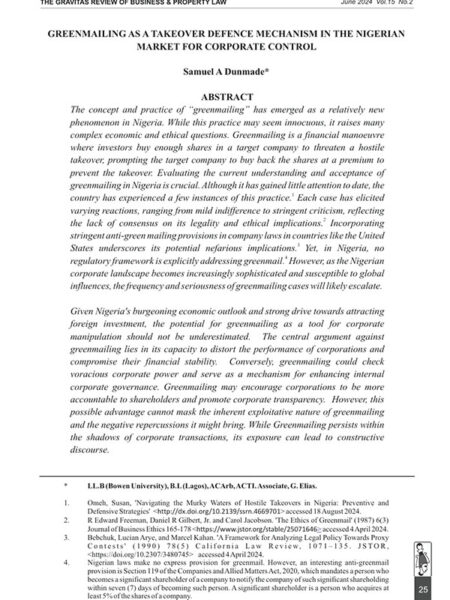
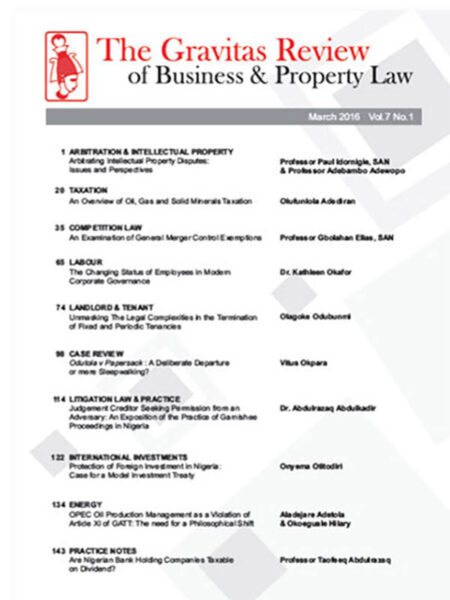
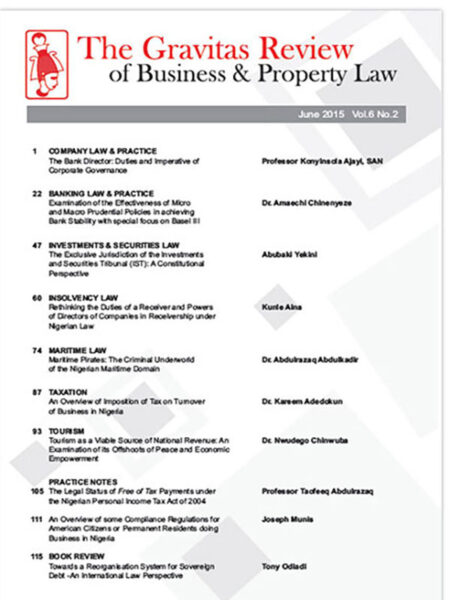
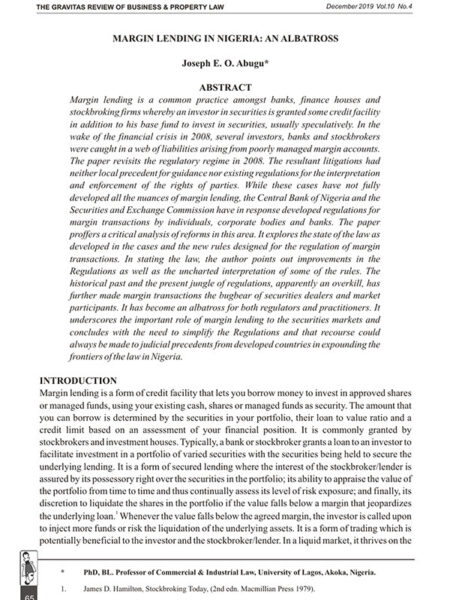


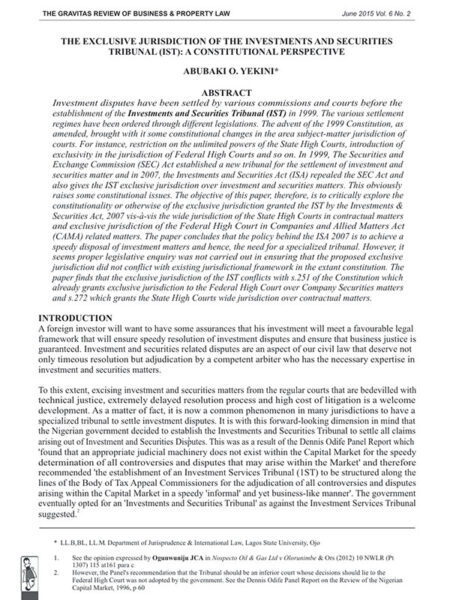
Reviews
There are no reviews yet.